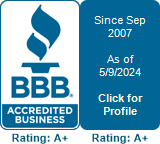
For business owners, the IRS is a dominant figure. For every financial aspect of an organization, there is a tax code, penalty, or rule that governs it. Nowhere does the tax process seem more complex than the area of payroll taxes. When a company makes a mistake on an employees' tax withholding, this opens up the door to a potential financial penalty for the individual.
Accuracy is not just requested - it's demanded. If your organization is handling your payroll services inhouse, there is always the risk of error. Learn just some of the common payroll mistakes that are costly for business owners and workers.
Employee Classification
Each person that works for your company will generally fall into one of two categories: employee or independent contractor. Accurately classifying each person is critical. An employee is paid a set salary, be it an hourly or annual wage, and performs a role that is vital to the daily operation of the organization.
An independent contractor is paid a per-task fee, is not guaranteed a certain amount of work, and typically performs work on an as-needed basis. An employee is also subject to unemployment, Medicare, and Social Security tax withholding and other deductions that must be handled and submitted by the employer.
An independent contractor is still subject to these payments, but it's not the responsibility of the company to withhold these amounts. However, whenever an independent contractor earns $600, you must submit a Form 1099 on their behalf.
If a company incorrectly classifies an employee as an independent contractor, the IRS may legally hold the company liable for any missing tax payments.
Withheld Tax Deposits
Tax payments withheld from employee wages must be paid in a timely fashion. The amount of the taxes due will determine how frequently these deposits must be made. For tax withholding that is $50,000 or less, you need to make these payments once a month; the IRS provides you with a specific due date your deposit must be made.
When the withheld amount exceeds the $50,000 threshold, companies are required to make this deposit semiweekly. The due date for these payments is based on the employee payday. For instance, for a payday that falls on a Wednesday, Thursday, or Friday, the deposit must be made by the following Wednesday.
At any point when you collect more than $100,000 in withheld tax payments, you are required to make the deposit the next day, regardless of your typical deposit schedule, such as monthly or semiweekly.
Fringe Benefits
When a company pays an individual for their work, this is classified as compensation for service. When a company compensates a worker outside of this, it's known as a fringe benefit. Specific fringe benefits are tax-free, including tuition reimbursement, health savings accounts, and employee stock plans.
Monetary payments like gift cards, relocation reimbursement, and awards are sometimes taxable, and it is the responsibility of the company to report the cash value of these benefits to the IRS for the purpose of factoring income and employment tax withholding.
For example, if you gave two employees a prize vacation, you would need to include the market value of the trip as part of their income. Similar to employee classification, errors on your part that lead to a withholding underpayment could leave your company subject to penalty.
Payroll tax accuracy is vital for businesses of all sizes. Misinformation exposes a company to penalties that can be long-lasting and costly. Payroll services afford your company the certainty you need and deserve, and at Quality Bookkeeping Services Inc., we can fulfill this for you. Contact us
to learn how we can help.













